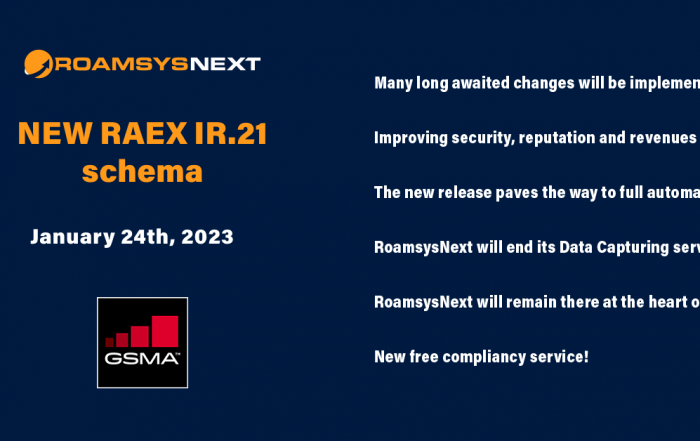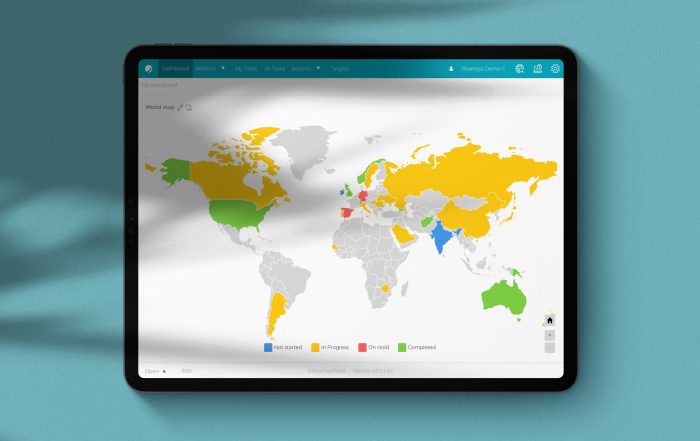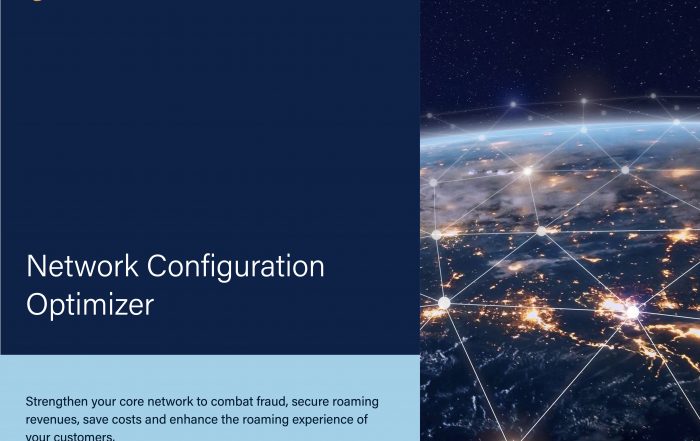
Gabriele Lieser
CUSTOMER SUCCESS MANAGER
Summary
Voice fraud is known as one of the top inter-carrier fraud cases, and in order to expose them, time and reliable data is crucial. Interconnect Bypass, SIM Box fraud, Refiling, False Answer Supervision (FAS) cause a lot of problems, and prevention is key to make sure that legitimate traffic is not obstructed. Wouldn’t it be nice if there was an innovative application able to deal with fraud issues and security threats in a fraction of time? Stay tuned!
Telecom fraud not only affects MNOs and their residential and commercial subscribers, it impacts everyone in the industry. Especially voice fraud burdens subscribers with huge bills and, at the end of the day, operators have to pay for it.
In our previous blog, we introduced you to International Revenue Share Fraud (IRSF), IP PBX/ PBX hacking and roaming fraud. Especially with roaming fraud, the GSMA found ways to improve the situation remarkably. When the NRTRDE (Near Real Time Roaming Data Exchange) format was developed and standardized, our CTO Hendrik Hoehndorf contributed substantially by leading the GSMA FSS working group which was tasked to define the new standard. While NRTRDE certainly proved to be very beneficial, it still gives fraudsters a few hours’ window to act undetected. And this is an unsatisfactory situation for all fraud managers. This means there is still a lot of work to do, and fortunately, a lot of innovation is going on. Stay curious for our insights regarding newest developments in this field.

In RoamsysNext Insights our experts share their views on extensive industry topics and possible solutions we can offer.
Let us first take a look at more dangerous fraud incidents that happen to MNOs on a constant basis. These schemes are used to generate illegal or abusive voice calls such as Interconnect Bypass, SIM Box fraud, Refiling and False Answer Supervision (FAS). How is it still possible that fraudsters cost the industry such an immense amount of money? Follow us around the “chamber of horrors”, and also see, what we can do to make lives easier.
Interconnect Bypass
With interconnect bypass fraud, the criminal exploits the difference between high international interconnect rates and low retail prices for on-net and off-net calls. As soon as a call travels through various networks before it reaches the end user, a portion of the per minute fee is paid by the operator to each of the networks that the call is passing through. Bypass techniques are designed to take advantage of this differentiation in routes and prices, and in some cases fraudulently pretend the call is delivered to the end-point. Interconnect Bypass Fraud accounts for 4.27 billion USD of revenue losses worldwide (CFCA 2017 survey). Interconnect bypass schemes include SIM Box fraud and Refiling, so let’s have a closer look at this.

SIM Box fraud
Criminals exploit a local tariff of on-net to on-net calls by acquiring SIM cards in a country and using these in SIM Boxes to terminate calls to subscribers of the network from international routes, usually by advertising a low-cost route into that country on international interconnects. Thus, fraudsters only pay the subscription fee and the local tariff (usually free minutes are included with a SIM) and stand to make large profits. This is mostly seen in countries with high international termination and low tariff packages that bundle free calls. The criminal usually has access to large volumes of SIM cards from an operator through connections with an agent of the operator.
Telecom fraud impacts everyone in the industry!
Refiling
Refiling, A-party Refiling, A-Party Caller Spoofing and other terms describe the method where carriers, such as transit carriers or clearinghouses who are entitled to terminate traffic to an operator, falsify the CLIs (Calling Line Identity) of calls to a network. They profit from terminating international traffic that masquerades as national traffic or as international traffic with a lower rate from particular sources. Detecting and protecting against this fraud requires careful monitoring of inbound calls, and, most specifically the route taken to arrive onto the network.

False Answer Supervision (FAS)
Another irritating fraud scheme that is particularly difficult to detect, especially because in many cases this is only applied to a small percentage of traffic. False Answer Supervision means that the call is actually answered but this is not indicated back to the caller, thus driving up the minutes and cost of the call. Two variants of this fraud occur: the answer signal is already returned when the ringing starts and not when the customer answers, or the signal is rerouted to a recorded message that starts with a ringing tone and a message or background noise that triggers the caller to stay on the line as long as possible. Increased length of a call increases costs.
Deal with it in a fraction of time
The list of fraud incidents is long, and as usual, it exposes the crucial factor of time and reliable data. Verifying numbers has never been more important, both for subscribers and MNOs. A lot of work would already be done if correct configurations for various network elements were ensured as well as pro-active protection. Already today, our tools simplify tremendously the initial and ongoing correct configuration of every roaming relevant network element, helping you to block any unwanted or unauthorized traffic with very little effort.
As the shortage in human resources calls for an easy-to-use application to increase efficiency, transparency, and optimize resource management, we continuously optimize our applications to serve you even better. In addition, we are increasingly keeping an eye on upgrading security aspects. That’s how you can leave analysts/ investigators with the most relevant cases to review. Since we are experienced in developing the InfoCentre RAEX Tools application on behalf of the GSMA, our tools are fully compliant and can be most easily implemented and aligned to your specific requirements. Talk to us, we will listen to you
Gabriele Lieser joined RoamsysNext in 2020 as Customer Success Manager to strengthen the bonds with our increasing number of customers and to support the marketing team. Gabriele has a strong background in corporate sales. She studied at the Universities of Trier (Germany) and Manitoba (Canada) and is incorporated in the RoamsysNext Client Service team.
“The team is a crucial asset”
It has been an exciting year for RoamsysNext. And as 2023 is coming to an end, we took the opportunity to talk with CEO Michael Grasmück about the past year, the growing team that becomes more and more international, and the comeback of an industry institution.
15 years of RoamsysNext – Driving Global Connectivity
RoamsysNext turns 15, so we talked with CEO Michael Grasmück about the anniversary, the early years, the move to Luxembourg and the future within the fast-developing roaming industry.
The new age of the IR.21 – Be ready for the full automation!
The new RAEX IR.21 schema will be released early 2023 with great changes coming that allow us to revolutionize the way we work with the IR.21 data.
Reporting at a glance: The RoamsysNext Dashboards
The RoamsysNext tools offer many reporting functionalities of which the dasboards play an important role. Learn more about using them in practice to identify bottlenecks, visualize your team's performance and bring a smile to your management's faces.
End-2-End-Automation with Network Configuration Optimizer
The RoamsysNext Network Configuration Optimizer is the perfect solution to make the shift from manual processing to more and more automated processing, with the option to move to full automation. Let's see how it works.
From Roamsys to RoamsysNext
Sixteen months ago, Roamsys relaunched and became RoamsysNext. Time to look back to a year we never expected to happen.
How to Stay Secure
What can MNOs do to stand up to the ever-growing tide of telecom fraud and protect their assets? Stay alert, use great tools, collaborate with other market players, and take the fight to the fraudsters.
Telecom Fraud Hurts
Telecom fraud is a rapidly growing area that has serious effects on national critical infrastructure (civil, healthcare, energy, agriculture...) and wider industrial processes.
The GSMA MISP – How Does it Help?
Malware information sharing and threat intelligence sharing has unbeatable benefits that make any caveats and challenges look small in comparison.
The Experts behind RoamsysNext Insights
RoamsysNext Insights has a growing fan base due to its substantial reports. With a wide variety of great information and exciting insights, they inspire beginners as well as professionals.
How to Treat 2G and 3G Closures without Becoming an Archivist?
As we are entering the era of 5G, legacy networks are in a state of flux and lose significance. This blog is about how the sunsetting of 2G and 3G networks will impact mobile communication.
How to Choose a Signaling Firewall Wisely
In times of global turbulences and increasing fraud attacks the decision for a sophisticated signaling firewall becomes more and more a priority. Some general considerations help to narrow down the choice.
Identity Fraud in Telecom
Identity fraud robs people of their virtual existence; it costs time, money and nerves. But there are countermeasures that help.
How to Tackle the Challenges in Combating Telecom Fraud
Telecom fraud can have dire effects on critical infrastructure and always causes painful loss of revenue. See how the industry's joint efforts tackle the challenges in combating telecom fraud.
Face the Breach: Rehearse an Emergency Before it Happens
In case of a breach, most companies are poorly prepared to take quick action. Have a look at some ideas on how to make the best of a difficult situation and save valuable time.
Working from Home during a Global Pandemic
Due to the broad introduction of remote working, businesses need to rethink their current cyber security measures and consider how they need to be adapted or further developed.
The Future of Roaming Trainings – An interview with Milja Hofman, CEO Roamingwise
Roamingwise is a well-known provider of roaming trainings, seminars and consultancy in a variety of international roaming topics. In our interview, CEO Milja Hofman reveals how she prepares professionals to drive the roaming world.
Historical Fraud Incidents and Lessons to be learned
In the course of history, no era is free from the practice of deception for personal benefit. Let’s have a look at what we can learn from historic fraud cases from ancient Greece to modern times.
Two-Factor Authentication rules!
For some time now, we have introduced 2FA and have contributed our share to provide more secure access to our tools. Norbert Becker, Head of Software Development, picks up the thread and provides engaging insights into his area of responsibility.
Introducing: The RoamsysNext Network Configuration Optimizer
Learn how the RoamsysNext Network Configuration Optimizer enables MNOs to switch safely to full automation and growing roaming revenues by providing effective and secure data management of all roaming related business information.
Introducing: The RoamsysNext Wholesale Roaming Manager
The RoamsysNext Wholesale Roaming Manager provides powerful collaboration and reporting tools for all roaming partner relationships by converging everything from service openings to the user’s roaming footprint, test SIM cards and tariffs, document and contact management.
Don’t fear the breach – three more ways to avoid configuration errors
Three ways to bliss: take bold measures to automate processes as much as you can, check your firewall’s security logs regularly and enforce centralized authentication mechanisms.
We’re in this together
In the second part of our interview with Alexandre De Oliveira, POST Luxembourg Cyberforce, he highlights major pain points in fraud detection and stresses the importance of global information sharing via the GSMA T-ISAC initiative.
Mastering today’s Fraud Landscape
Learn how Alexandre De Oliveira’s team at POST Luxembourg Cyberforce is mastering today’s fraud landscape with penetration tests, security assessments, the Telecom Intrusion Detection System (TIDS) and the Telecom Security Scanner (TSS).
How to avoid configuration errors
Hardening the network is a good way to get configuration errors under control. Introducing smart firewall rules and consistently updating these rules can be very time-consuming, but it’s a crucial measure to be taken.
From customer request to feature
In our newest “RoamsysNext Insights”, David Houstek and Adrian von Wendt elaborate on our customer focused production processes.
Making a Stand against Fraud
In an insightful interview, our CTO, Hendrik Hoehndorf, speaks about further GSMA initiatives on fraud detection and prevention such as the MISP (Malware Information Sharing Platform) and T-ISAC (Telecommunication Information Sharing and Analysis Centre).
Cyber security and fraud prevention – the GSMA approach
How does the GSMA approach cyber security, fraud detection and prevention? Look at the incredible useful tools and informations they provide with the Fraud and Security Group (FASG) and documents on best practice countermeasures.
How insecure GTP makes LTE and 5G networks vulnerable
GTP will still have an impact on 5G. Our tools can help to identify dubious requests faster, reduce reaction times and block incidents in a fraction of time.
How bad can it get? Signaling attacks strike the heart of each MNO
This blog is about how correct data is key to ensuring that mobile communication is of trustworthy origin, especially in case of signaling attacks. Notably, the roaming industry has to take action for data verification.
Grey Routes, Spam, Smish – funny words but nothing funny about SMS Fraud
SMS enjoys the reputation of being a safe channel for communication. But as any system, it is prone to abuse. We show you what needs to be done.
4 more Types of Telecom Voice Fraud MNOs are vulnerable to
Voice fraud is known as one of the top inter-carrier fraud cases, and in order to expose them, time and reliable data is crucial. This article shows that prevention is key to make sure that legitimate traffic is not obstructed.
Three Types of Telecom Voice Fraud that can destroy businesses
This issue shines a light on the variety of security breaches and fraud incidents: A cabinet of horrors.
Problems with telecom fraud? How big the issue really is. And how we can help
Fraud and security issues cause considerable problems within mobile network operators. But we are here to help.
Let’s talk about data quality
Most fraud and security issues are caused by misconfigured network nodes. This article shows, how RoamsysNext treats this problem on their quest for data quality.





























